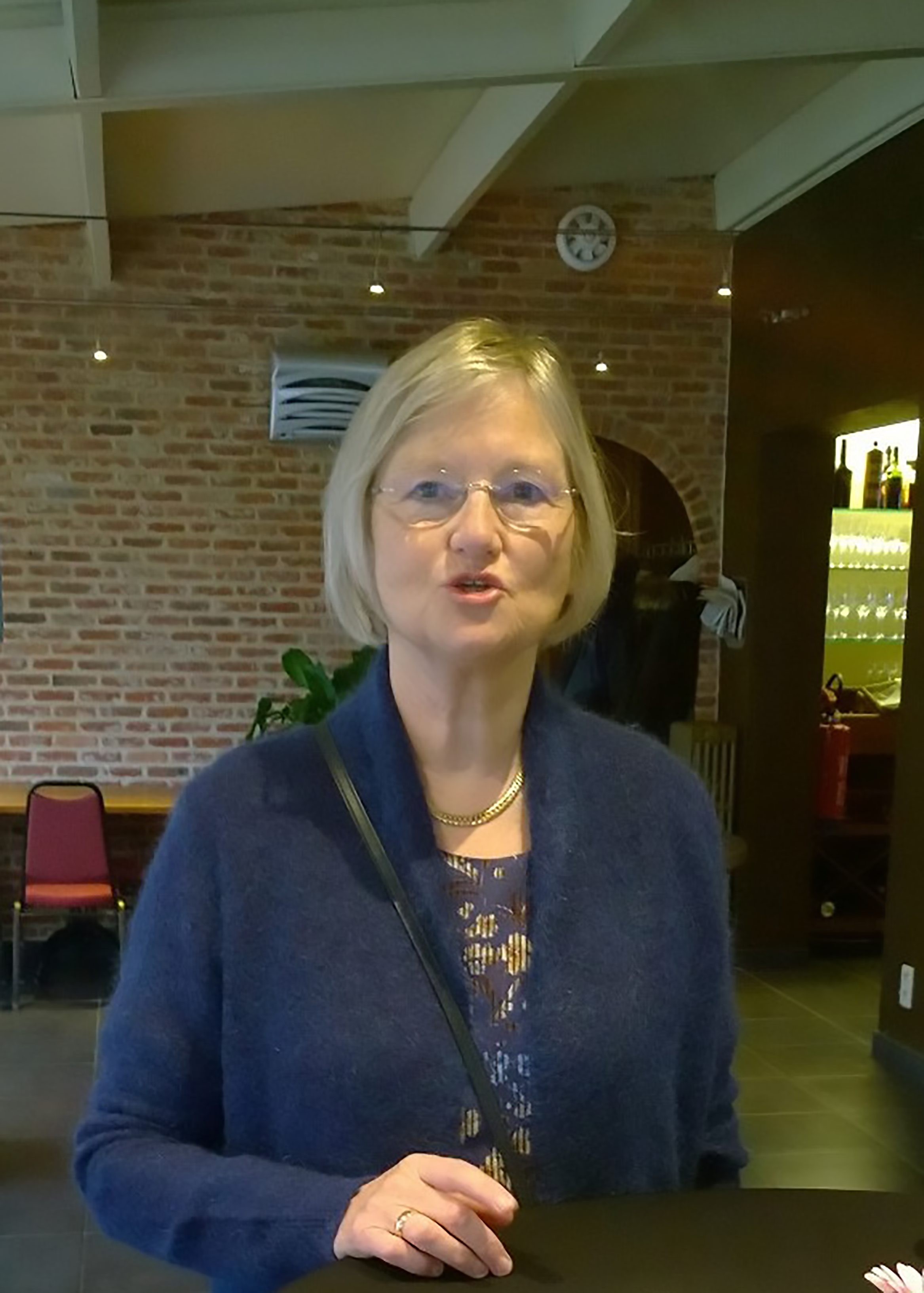Gerry Evers-Kiebooms is Emeritus Professor of Human Genetics and Psychology at KU Leuven, Leuven, Belgium. She will be giving the ELPAG Award Lecture at 12.00 on Monday, August 30. She talked to Mary Rice about her life and work.
Deciding what to study at university was not easy for Gerry Evers-Kiebooms. “I was interested in learning about and understanding the world in the broadest sense – from mathematics and biology to languages both ancient and modern. My choice of undergraduate degree was further complicated by having no direct role models in the family or in my close environment.” Her investigation of undergraduate courses at Leuven revealed that studying to be a Bachelor of Psychology involved a highly multi-faceted programme. “In addition to psychology, students would also take physics, biology and genetics, economics, statistics, etc. As opposed to most psychologists, I was extremely interested in statistics and methodology, and during my Masters’ years I opted for mathematical psychology as my major. The topic of my doctoral dissertation was ‘Mathematical models for the analysis of preference data.”
In mid-1977, immediately after obtaining her doctorate, she started work evaluating the impact of genetic counselling and prenatal diagnosis at the Centre for Human Genetics at Leuven. “I was very pleased to be able to use my background in methodology in this new job. It was a fascinating challenge that opened a fascinating new world to me.” Thereafter she became something of a pioneer in the growing study of the psychological aspects of genetic counselling and genetic testing, where the steadily increasing technological possibilities in karyotyping and DNA analysis that offered many new opportunities for families confronted with genetic diseases meant that studying their psychological implications was of the utmost importance. “I am happy to have been able to establish and develop the Psychosocial Genetics Unit in Leuven, and that it has made an important contribution to clinical practice and research. And I am particularly happy about the work we have done in the context of predictive testing for late-onset disease.”
Like many others, she finds the ever-increasing pressure to publish a problem. “During some periods it was rather difficult to achieve an acceptable work-life balance. I regret that the excessive emphasis on publication impeded the setting up of the very long-term follow up studies that are necessary to evaluate the impact of predictive testing on those tested and their families, including across generations. This has been the case for long-term follow up in other disciplines too.”
Gerry Evers-Kiebooms has been an emeritus professor since 2010, but she continues enthusiastically with several projects, while being able to enjoy a somewhat more relaxed life. “I belong to the Board of the Senior University at Leuven, where we organise a large series of lectures about a wide variety of current themes. Organising and attending these lectures also helps me in my desire to learn more about issues outside genetics and psychology.
“I am also a board member of a number of organisations that offer residential care for children and adults with cognitive disabilities. My interest in these organisations finds its origin in the problems of my younger son. Other than this, I enjoy reading, walking, visiting exhibitions, travelling, and social activities with friends. Last, but not least, I appreciate having more time to spend with the dearest priorities in my life – my two sons.”
In her Award Lecture, Gerry Evers-Kiebooms will revisit research about genetic risk perception, decision-making involving genetic risk, and the psychological impact of genetic testing in families confronted with genetic disease. “I will also discuss studies evaluating genetic risk perception and opinions about genetic testing in the general population. But I will pay most attention to clinical practice and research about predictive testing and prenatal/preimplantation diagnosis for late-onset disease. My talk will combine a look back, always bearing the ethical dimension in mind, with some personal views about the future.”



